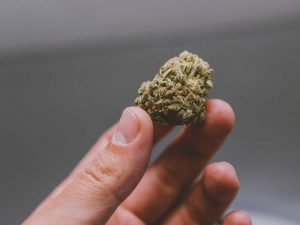Undergoing detox may not be life-threatening but it can cause you serious distress. When the brain realizes that the substance is no longer in the system, it reacts negatively and produces a variety of unpleasant symptoms.
This is due to the powerful influence of Tetrahydrocannabinol (THC) in the brain. This is one of the chemicals found in marijuana which plays an essential role in treating serious illnesses, yet at the same time, induces addiction with excessive use.
Is Marijuana Dangerous?

Although the drug has been legalized in about two-thirds of the states in America, it remains federally illegal. In fact, the FDA continues to classify it as a Schedule I controlled drug, although considerations of reclassifying it to Schedule II are currently being studied.
The main reason for the reclassification is for researchers to gain easier access to the drug and be able to conduct further studies about its pros and cons. This is highly essential, especially with the growing number of marijuana users in the country.
With almost half of the American adult population admitting to having used the drug at least once in their life, it is a strong indication that most people have overlooked its potential risks.
It may be likely that using the drug only a few times a week will not cause any trouble upon ceasing use. However, once the habit shifts daily, a Cannabis Use Disorder will follow.
With chronic use, marijuana is dangerous. High THC levels in the brain can cause major changes in its function and form. All the more when it is used by individuals as young as 18 years old and below.
How Does Marijuana Detox Work
Any addiction treatment begins with detox. Unlike other substances, detoxing marijuana may take longer than other substances do. This makes withdrawal challenging. The discomfort can last at least a week, while other substances last only up to one.
When a person quits using marijuana, the withdrawal symptoms may occur after about 2 or 3 days. The peak reaches on the 10th day from the last use.
Gradual cessation of usual doses is needed to detox safely. Otherwise, these withdrawal symptoms can surge intensely if you quit cold turkey.
THC is a unique substance that can be hard to remove from the system completely. There are instances when these chemicals get trapped in fat cells for a month, and you may experience withdrawal even after getting past the detox phase.
This explains why there are certain occasions of experiencing insomnia and mood swings at some point after detox.
What To Expect In Marijuana Detox

While others can separate themselves easily from the substance, heavy users struggle a lot due to the withdrawal symptoms and the strong cravings that occur when they quit. It can be easy to turn back to using the drug just to relieve oneself.
For other substances, returning to substance use can be fatal. But with marijuana, it rarely happens that a person may need immediate medical attention.
However, the impact of withdrawal on every person is always different, and it is important to always stay on the safe side to avoid getting caught off guard.
Typically, when a person begins to experience dehydration and psychosis during detox, they must see a doctor immediately.
The most common physical challenges during detox include the following:
- High body temperature
- Extreme sweating
- Chills and tremors
- Headache
- Abdominal cramps
- Nausea and vomiting
- Body malaise
The Marijuana Anonymous shared that their members have most commonly experienced having trouble sleeping due to insomnia and experiencing nightmares during detox. This is followed by depression, which can trigger suicidal ideations.
It is also commonly observed that patients exhibit irritability and aggression during detox, and they tend to direct these negative emotions towards others or themselves.
During these occasions, it is important to shed their patience, understanding, and support as they are going through so many changes in their physical and mental disposition.
Some people who go through detox may even drastically lose weight due to the loss of appetite. Other psychological symptoms include anxiety and restlessness.
Overall, detoxing marijuana can be extremely unpleasant. Some people may even continue to deal with the psychological symptoms for up to a year.
How To Manage Withdrawal To Marijuana

Despite the unpleasant episodes of detox that can last for weeks, withdrawal pain and cravings are manageable. In fact, some people may even detox safely at home.
However, the tendency for detox to be unsuccessful is high when you choose to do it without medical guidance or when you do it alone – without adequate support at home.
The following are some of the ways to manage withdrawal discomfort during detox:
Medical prescriptions
Medical prescriptions can be taken to relieve certain symptoms such as headaches and nausea. Sleep aids can also help one overcome insomnia. Doctors know best as to what drugs should be taken during detox so it is important to always keep in touch with them.
Therapies and support groups
Due to the intense cravings that may continue to persist for months, relapse can also happen at any time. The key to sustaining sobriety is to continuously engage in therapies and support groups such as Marijuana Anonymous.
Therapies can start as soon as a person’s physical disposition has stabilized. It takes about a week or two for the physical symptoms to dissipate, although the psychological ones may continue to progress up to at least a month.
Therapies are proven to help patients establish skills to cope with temptations to use the drug. They will be trained to identify their triggers and establish behavior that can help them get through them.
A healthy lifestyle
Other interventions include keeping a healthy lifestyle by maintaining a healthy diet that includes fruits and vegetables, engaging in light physical exercise such as walking or jogging, as well as mental exercise such as meditation.
Overall, detox is always a challenging phase that can be completed with adequate medical and moral support.





